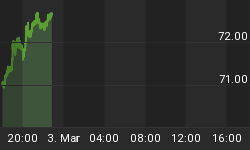We've heard how the value of the dollar affects gas prices - and indeed the price of everything. I was pleased that my request for a hearing on such was granted by the Financial Services committee and we were able to hear some very informative testimony. Certainly domestic policies, regarding off-shore oil drilling bans, ethanol mandates, refining capacity, and CAFE standards are interventionist and harmful enough in the energy market.
But how does foreign policy affect gas prices? One important factor is that oil on the world market has been priced in dollars exclusively since 1973. Only two leaders have gone against this arrangement - Saddam Hussein in 2000 and more recently Mahmoud Ahmadinejad with the recently opened Iranian Oil Bourse which trades in non-dollar currencies. But since oil is otherwise exclusively traded in dollars, this means that oil producers have vast amounts of assets held in dollars. Especially since the War on Terror and the PATRIOT Act, many oil-producing nations and banks are concerned the US government may freeze assets based on flimsy pretexts. This fear contributes to dollar weakness, and therefore also high oil prices.
Recently I and other members of Congress spoke out against H Con Res 362 and exposed this seemingly innocuous bill for what it really is - a call for a blockade and a build up to war with Iran. Thankfully it has not come to the floor for a vote as I had fully expected it would. But to even propose legislation like this, and get an alarming 261 cosponsors, makes the oil markets jittery and encourages more capital flight from the dollar. We only isolate ourselves on the world stage with actions and attitudes like this. After all, how can it be wise for the rest of the world to bank on America, when we tend to freeze assets and blockade entire countries for no good reason?
Another major factor is our intervention in international military conflicts. These conflicts are often much more complicated, and have more to do with oil than our own leaders are willing to acknowledge. Too often the side we support points our weapons right back at us down the road. The best policy is always free trade with all and entangling alliances with none, but instead we isolate ourselves by picking sides and making enemies out of our friends or potential friends. In the recent conflict with Russia and Georgia, it appears that once again the administration is going to pick sides and send taxpayer money, when we are in a deep recession here at home. There is no good reason for us to put a dog in every fight around the world.
The contributing factors in the price of oil are complicated and legion. The fact is, it is an immensely valuable resource, and, as our demand for this resource is great, our relationships with world leaders who control it should be handled with reason and intelligence. However, our interventionist mindset when it comes to foreign policy never ceases to get us into sticky situations, for which we pay a premium at the gas pump.
















